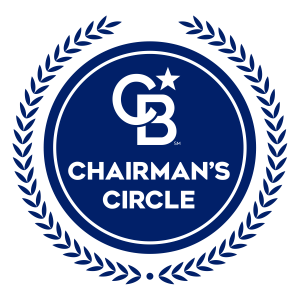Steering clear of homebuyer’s remorse requires more than just picking the right home in the right neighborhood. According to a 2016 survey by J.D. Power, 27% of new homeowners ultimately came to regret their choice of lender. One major reason for the dissatisfaction was overall poor customer experience, including lack of communication and unmet expectations. Another factor? Pressure from the lender to choose a particular product or loan. You can remove some of the tension and turmoil of house-hunting by carefully vetting potential lenders. Here are some questions to ask potential lenders before you commit.
Pop Quiz: How Well Versed Are You in Home Mortgage Loans?


If you are in the market for a new home, then you’d better read up! No matter how much you know regarding mortgages, its never too late to learn.
A lot of Americans are caught up in a mortgage nightmare simply because they didn’t dive into the process with some preparation. With a little studying and education, getting a home mortgage can become a far less stressful endeavor.
Here are a few questions that can help you go into the home mortgage process with more knowledge and confidence. Although this quiz doesn’t cover everything you should know, it’s certainly a good start:
Question 1: What is the difference between pre-qualification and pre-approval?
Answer: Pre-qualification is the first step in the mortgage process that involves supplying a bank or lender your financial information in order to find out how much you can borrow on a loan. Pre-approval is when you and your mortgage banker review your credit report to determine if you’re worthy of qualifying for a particular loan amount.
Question 2: What are the two big cash expenditures that require having money on hand to buy a home?
Down payment and closing costs.
Question 3: Generally, a monthly mortgage payment is made up of four different components commonly referred to as “PITI.” What are they?
Answer: Principal, Interest, Taxes, and Insurance.
Question 4: Why is it recommended to make one extra payment a year for people on 30-year fixed mortgages?
Answer: Since extra payments cut down the principle of your loan (and not interest), giving one additional payment a year can shorten your loan term by a decade.
Question 5: What is the downside to a subprime mortgage?
Answer: Although subprime mortgages come with lower introductory interest rates, they increase significantly after a number of years.
Question 6: What does LTV stand for and how do you determine it?
LTV stands for loan to value ratio. To find out an LTV, divide the loan amount by the appraised value of the house. So if your home is worth $200,000 and the loan amount is $100,000, then the LTV is 50%.
Question 7: There are three term lengths you can get for a fixed-rate mortgage. What are they?
Answer: 15 year, 20 year, and 30-year terms are your options for a fixed-rate mortgage.
Question 8: Of the mortgage rates mentioned in the last question, which one do most people find the easiest to qualify for?
30-year mortgages since a longer term means lower, more affordable payments. The fact that longer terms also mean bigger tax deductions also plays a role.
Question 9: Is it a good idea to get an ARM (adjustable-rate mortgage) if you plan on owning a home for a long time?
Answer: No. Since the interest rate on ARMs change along with market rates, they are unpredictable. An ARM is only recommended if you’re staying in a home for a short period of time.
Question 10: Lenders will look at your job history when considering offering you a loan. A red flag for them is if you haven’t been at your current job for at least how many years?
Lenders like to see that you’ve kept the same employment for at least two years. This also applies to people who are self-employed and part-time employees.
Question 11: What is it called when you owe more than your house is worth?
Answer: Owing more than your house is worth is called being “upside-down” on your mortgage.
Question 12: Is it OK to open a new credit account during the mortgage process in order to help pay for moving expenses, new furniture, etc?
Answer: No. Since everything must be documented with payment amounts and account statements, doing so can affect your debt-to-income ratio.
Source: DreamCasa.org

 Facebook
Facebook
 X
X
 Pinterest
Pinterest
 Copy Link
Copy Link









